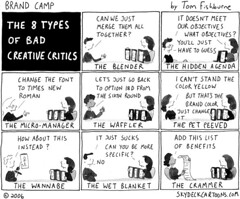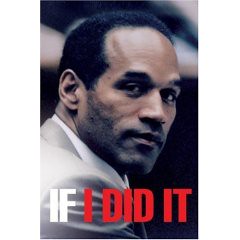Model Transformation

Supermodel Kate Moss was "discovered" by Sarah Doukas of the Storm Modeling Agency, while she was passing through JFK International Airport in New York. Moss first starred in a series of Calvin Klein ads through the 1990s, spurring a period of waify, androgynous "heroin chic" and the accompanying public outcry.



According to the Kate Moss fan site, in 1999, Moss publicly said that she had never walked a fashion catwalk sober, "even at ten in the morning". She has been a member of both Alcoholics Anonymous and Narcotics Anonymous. Moss is 5-foot-7 and weighs an estimated 100 pounds, perhaps a few pounds less, though she says she never weighs herself. In 1998, she was hospitalized for exhaustion, and her people dismissed all rumors that "exhaustion" was a code word for heroin addiction. In 2000, she was hospitalized with a kidney infection. In 2003, she was hospitalized with a sleeping disorder. She also smokes in the neighborhood of 80 cigarettes daily.
Despite her bad behavior , bad choice in boyfriends and lack of height (average height of most supermodels is 5 foot, 10 inches), Moss has had a long career by supermodel standards: 15 years and counting. She has consistently been one of the most sought after models for both editorial work and advertising campaigns, gracing the cover of Vogue more than ten times and appearing in ad campaigns for Gucci, Burberry, and Chanel. She has reportedly made upwards of $10 million annually, needs only her first name for instant recognition, and was named one of People Magazine’s 50 most beautiful people.


All that changed in September of 2005. Videotaped in the wee hours of the morning snorting cocaine with boyfriend Pete Doherty at a recording studio, Moss immediately made the front page of London’s Daily Mirror emblazoned with the headline “Cocaine Kate.” Four of her ad sponsors immediately pulled the plug on their relationship with her, including Chanel. One company, H & M, stated that they reserved the right to assess the situation before making a final determination on their relationship, but after substantial consumer backlash, they too fired her as their spokesperson.

It had been a long time since the world witnessed such a vehement brand backlash, even the recent Nike sweat shop scandal didn’t compare to the brand banishment of everything Kate. Moss quickly made a public apology followed by an announcement that she was entering a rehabilitation facility. Naysayers and Kate critics boldly predicted her career was over.
Cut to exactly one year later. Kate is back and she is once again working with Chanel, Burberry and Dior, but in addition, she seems to be everywhere; the September issue of Vogue featured no less than twenty ads featuring a rehabilitated Kate, including David Yurman, Bulgari, and Roberto Cavalli. She also graced the cover of Vanity Fair for the first time, as well as Vogue and W, to name but a few.



So what did Kate do to warrant such an enormously successful “comeback"? Did she tour Africa and adopt underprivileged children? Did she publicly donate millions of her earnings to victims of Katrina? Did she valiantly state how her rehabilitation made her a better, more emotionally available person? No. No, no, and no. She didn’t. In fact, she did nothing. Not a thing! She simply re-emerged into the same world she had previously inhabited, and matter-of-factly picked up where she left off.


Kate’s immediate resurgence into our visual vernacular is even more remarkable when you consider the lead time of most magazines: months. Given the time frame of her re-introduction, this would suggest that she was booked and photographed approximately one day after she completed her rehab. Which means magazine editors and fashion houses alike were willing to bet on the strength of her brand stamina. She is now the spokesperson for no less than 18 major fashion houses.
It is a rather profound statement of Moss' public acceptability and good will that she was able to immediately recapture her previous bankability. While contemporary culture longingly treasures a good comeback, fallen celebrities such as Martha Stewart, Marv Albert, John Travolta, Anne Heche, Mariah Carey, Sean Puff Daddy P Diddy and Bill Clinton were expected to prove that were going to be bankable commodities before they recaptured their former glory. Even Britney Spears’ comeback is being documented and assessed by the hour as she flits back and forth between “has been” and “must follow.”
Earlier this month, Yahoo! reported that the post-rehab Moss was earning three times what she earned pre-rehab, to the tune of $56 million this year alone. Furthermore, Kate was recently honored as Britian's Model of the Year. "Kate Moss is a fashion icon, and without doubt, one of the most prolific models in the industry," the British Fashion Council said in bestowing the prize. "She has now been modeling for over 15 years and remains at the top of her game."
No one knows exactly why or how Kate has been able to do what Martha Stewart or Whitney Houston or Levi's or the Gap can't. By far, my favorite assessment of Kate's continued reign as a superbrand was summed up by London Telegraph columnist Tom Utley: "'Supermodel scoffs doughnuts' - now that really would be a story. But 'Supermodel snorts cocaine' ranks somewhere between 'Dog bites man' and 'Gardener mows lawn.'"
* * *
First published today on the uber-design blog Speak Up























